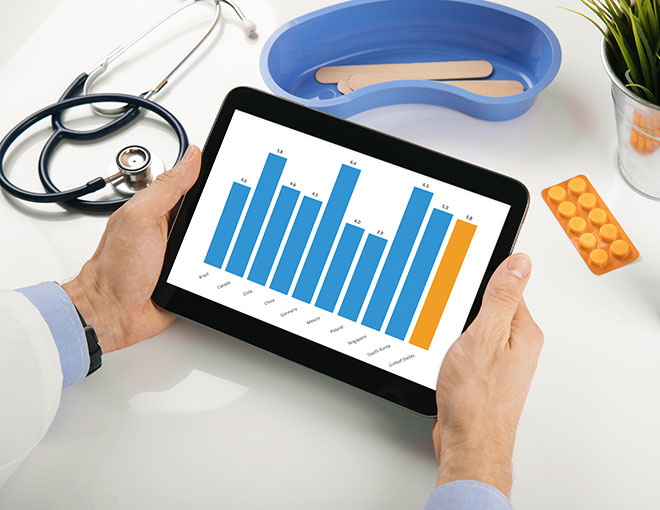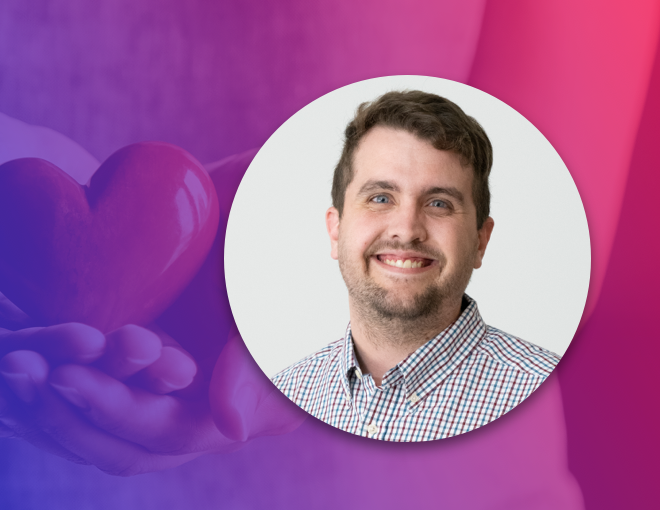At the center of Castlight’s mission to help people better navigate their healthcare lies a strong data foundation. We are able to provide personalized healthcare recommendations because the depth and breadth of that data foundation allow us to consider and incorporate all of the various factors that go into a healthcare decision—cost, quality, plan design, and convenience, among others.
We take our role as a good steward of healthcare data seriously. That is why we were thrilled by the opportunity to join a panel at this year’s Health Datapalooza conference, an event dedicated to improving healthcare through innovative uses of data. The panel featured Aneesh Chopra, former Chief Technology Officer of the United States, alongside digital health experts Julia Hu, Paula LeClair, and Geoffrey Clapp.
We discussed how to most effectively aid in healthcare decision making and help improve health outcomes through the use of machine learning and artificial intelligence. As I reflect on the conversation, the panel addressed three questions that are not just core to what we do at Castlight, but are core to healthcare technology overall. Those are:
- Who owns healthcare data? We pioneered the application of machine learning to empower consumers with transparency and personalized, timely guidance to make better health decisions. Over the past decade we have been in the field, this question has been top of mind for Castlight, our partners and customers, and the healthcare industry more generally. At Castlight, we believe that in healthcare, just as in any other industry, the consumer must be well-informed to make the best decision for their own health. Providing users with both access to their own data, as well as user-friendly interfaces, enables them to make the best healthcare decisions by considering key factors such as which provider is highest quality, what their benefits coverage level is, and how prices vary for even commodity services. Everything we do with our users’ data is in service of improving their health outcomes and experience. That includes protecting their personal health information, meeting the strictest security standards for handling such data, and only sharing de-identified, aggregate-level data with employers.
- How do we make sure we’re using comprehensive data? An individual healthcare journey is made up of a series of ongoing and interconnected decisions based on the user’s own health history. Unlike shopping for other goods and services, individuals can’t just compare healthcare costs to make the best decision. To help support those decisions, we need data that are both comprehensive—from a wide range of sources—and accurate. Our platform is powered by 2.5 billion records, and we have developed a proprietary quality score that helps people find the best possible care. In addition, we have worked to ensure our data accuracy by creating a feedback loop that allows us to learn from our users’ healthcare experiences and treatment outcomes. Combining patient-generated data with our foundation of comprehensive data allows us to make the most personalized and effective recommendations.
- Where do we go from here? How do we take what we know about machine learning and artificial intelligence—its uses and limitations—to unlock a better healthcare experience? To me, that means finding the right balance between science and art. For Castlight, the science is recognizing, through data, that one of our users is at-risk for developing a certain condition. The art comes with figuring out how best to connect with those users and guide them to the care that will best serve their needs. Bringing together the best of both approaches, whether through our digital platform or our high-touch services, means we can give our users highly-tailored healthcare recommendations that will be most impactful to their specific care needs.
From our start, we’ve harnessed data and cutting-edge technology to provide deeply personalized recommendations that will ultimately transform the employee experience with healthcare. We take our responsibility as both a guardian of data, and as a partner along the healthcare journey, very seriously. As the healthcare industry continues to realize the potential of machine learning and artificial intelligence, the ongoing conversation driven by data-focused events like Health Datapalooza is a sign that we’re moving in the right direction.



